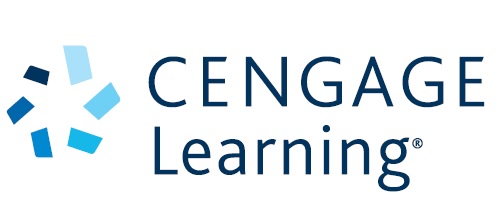
 Thank you to Cengage for their support
Thank you to Cengage for their supportIntegrated Reading & Writing Summit
Presented by CRLA and NADE
The design and delivery of developmental education courses is an ever-moving pendulum. While mathematics has received much nationwide attention recently, developmental reading and writing are also experiencing vast changes throughout the nation. As a follow-up to last year’s first National Integrated Reading & Writing Summit, the College Reading and Learning Association (CRLA) and the National Association for Developmental Education (NADE) hope to continue the conversation about integrating reading and writing at the college level.
On Thursday, Nov. 5, 2015, as a preconference event to the annual CRLA Conference, CRLA and NADE will host an Integrated Reading & Writing (IRW) Summit. The summit will include presentations and discussions of curriculum redesign, best practices, and information from states that have experienced mandated change.
The summit fee of $50 will include breakfast and session materials. Members of NADE and CRLA will have first option for registering. Registration will be made on the CRLA 2015 Conference registration form and will be limited to the first 200 registrants.
Cost: $50 (early registration)/$55 (regular registration)/$60 (late registration)
Fee includes breakfast.
Please note that registration for the full CRLA conference has sold out, but you can still register for the IRW Summit only. To register for the IRW Summit, contact the CRLA registration department at 414-908-4961 x. 105 or registration@crla.net
Schedule
Breakout Sessions: Models/Programs
(Choose one session)Integrating and Accelerating Developmental Reading and Writing Presented by: Jeanine L. Williams and Sharon Moran Hayes
This presentation will feature ACLT 052, an accelerated, integrated developmental reading and writing course. Specifically, we will discuss the inner workings of such a course--including a description of what the course entails, the process of designing the course, the collaboration between Reading and English faculty, and the professional development activities that are integral to the success of the course. In addition, we will present sample assignments, student work samples, and several semesters of data on student success and outcomes.
Window into an Accelerated, Integrated Reading and Writing Classroom Presented by: Katie Hern
As Director of the California Acceleration Project, Katie Hern supports faculty from across California during their first year of teaching an accelerated course in academic literacy. This interactive session will feature tools used in this work, including an instructional framework for integrating reading and writing, guidelines for choosing texts, and strategies for making sure that affective issues don’t derail students. Participants will get a sense of the day-to-day life of an accelerated, integrated course through classroom video, activities, texts, and assignments from Hern’s own classroom, along with online materials developed by other California teachers.
Disciplinary literacy: A strategies for teaching IRW Presented by: Jodi Patrick Holschuh
This session will demonstrate ways to integrate disciplinary literacy approaches into integrated reading and writing courses. Specifically, we will discuss the disciplinary nature of strategies along with suggestions for helping students understand the whys of strategy use. Participants will receive sample texts, view strategy examples, practice using the strategies across several disciplines, and discuss ways to use in strategies the classroom.
Evolving Successes: The Integrated Reading Writing Co-Requisite Model Presented by: Gwenn Eldridge
The integrated reading writing co-requisite model offers the best of both worlds: a course that provides the opportunity for students to complete the college-level composition course while also receiving the support they need in reading and writing. This session will share how Ivy Tech Community College implemented the IRW co-req course statewide, which has resulted in increased success and retention rates. An additional outcome has been renewed energy among the faculty as they work together to create models of learning that extend traditional pedagogy in new, exciting ways.
Breakout Sessions: Topics of Interest
(Choose one session)Assessing Tomorrow’s Leaders Today in an Integrated Reading and Writing Course Presented by: Kina Lara
Assessing students in today’s world is an ever-changing task. Formative assessments are quick and easily done in the classroom while summative assessments are often too high stakes. Portfolios are quickly becoming the wave of the future as these systematic collections of work help students assemble and illustrate their reading and writing abilities.
Literacy Ready: A Transitional Course to Make Seniors College and Career Ready Presented by: George Johnson
“Literacy Ready” is a rigorous transitional course for seniors who wish to improve their literacy skills to become college and career ready. Developed over the past three years by college and high school educators, this course combines the concepts of Disciplinary Literacy and the philosophy of the Literacy Design Collaborative. The full-year course provides scaffolding for reading and robust writing assignments for English, science and history.
Something Old, Something New: Five Considerations for Integrating Presented by: Sonya Armstrong
This session will detail five key considerations for developing and implementing an IRW curriculum. These considerations will be drawn from major issues relevant to a purposeful integration, including model-development, structure, and assessment. Theoretical background as well as practical examples will be provided for each issue.
Innovative Integrated Reading and Writing Instruction through Professional Development Presented by: David C. Caverly, Judi Salsburg Taylor, and Renee Domino
Through an interactive workshop, participants will explore professional development used as faculty created and implemented an IRW course at a large community college. Participants will learn about the role of mentoring, use of theory and research to develop a model of IRW and inform practice, and how to measure success.